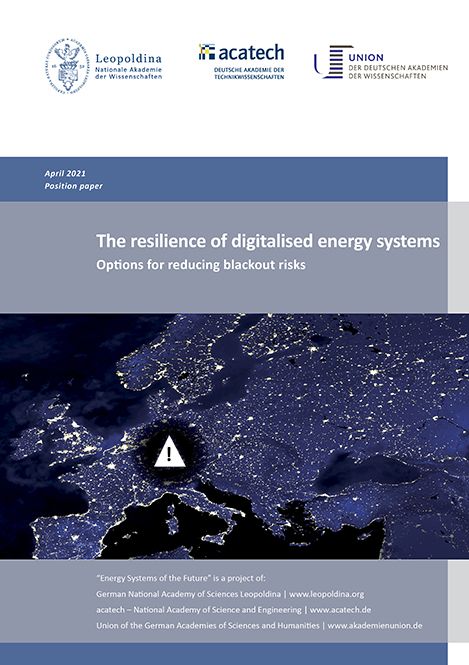Over the next two decades, the energy transition and the growth of digitalisation will result in new risks to the electricity supply. A resilience strategy will be required to manage these risks and reliably prevent blackouts and their damaging impacts on society. The “Resilience of digitalised energy systems” working group of the Academies’ Project “Energy Systems of the Future” has identified the following points as the key pillars of any such strategy:
- Digitalisation should be actively shaped and promoted, since it offers the opportunity to efficiently and securely integrate decentralised electricity generation structures, electric mobility and new market players into the energy system.
- Small players in the energy supply market, actors from outside the energy supply sector (appliance manufacturers, platform operators, public communication network operators) and private households all have a growing influence on the security of the energy supply. They should therefore be more closely involved in efforts to strengthen resilience.
- New targets for cybercriminals and the electricity system’s greater reliance on information and communication technology could result in unforeseen or even unforeseeable incidents with the potential to pose a major threat. Grid operators must be able to manage these risks.
- Policymakers must endeavour to anticipate future developments in good time and ensure that the resilience strategy called for in this paper is continuously adapted. This will require systematic monitoring.
acatech/Leopoldina/Akademienunion (Eds.): The resilience of digitalised energy systems. Options for reducing blackout risks (Series on Science-based Policy Advice), 2021. ISBN: 978-3-8047-4225-3




